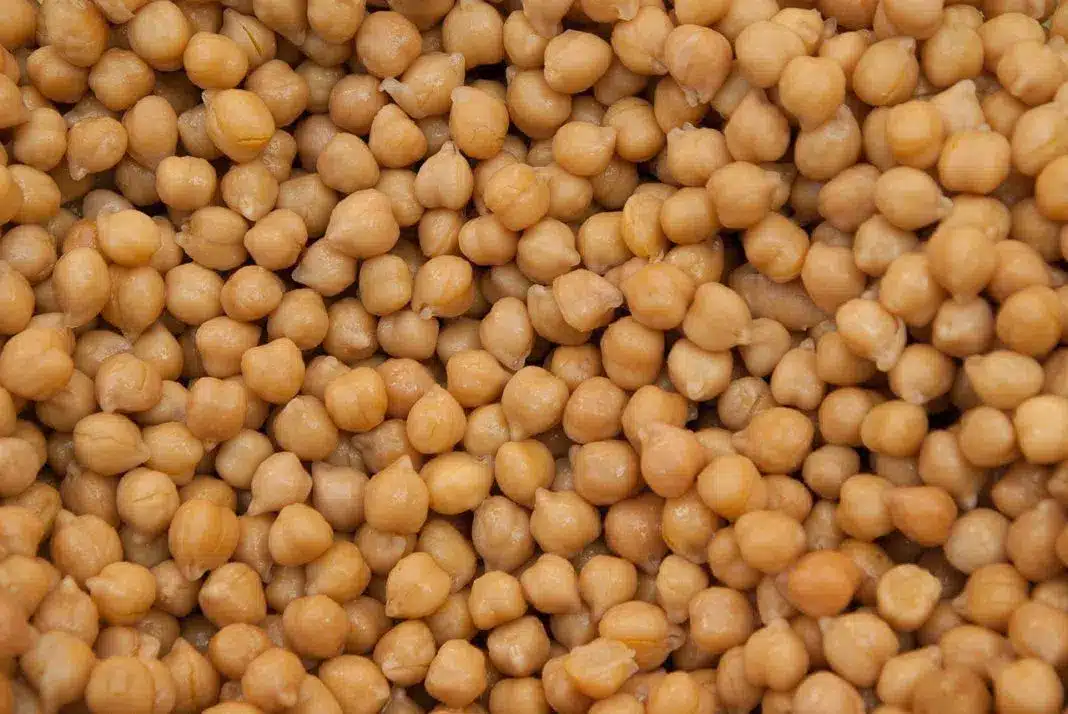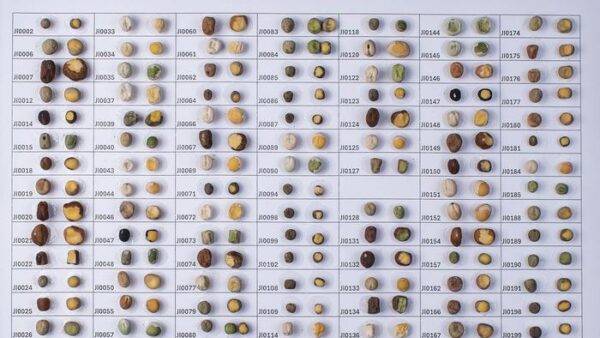A research team led by plant virus expert Dr. Björn Krenz from the Leibniz Institute DSMZ-German Collection of Microorganisms and Cell Cultures GmbH in Braunschweig, Germany, has examined chickpeas grown in Germany for plant virus infections.
For the first time, they have confirmed that this nutrient-rich crop is susceptible to multiple plant viruses, according to a press release. Their findings were recently published in the prestigious Journal of Plant Diseases and Protection.
Plant Viruses Endanger Chickpea Cultivation
A team of experts from the Plant Virus Department at the Leibniz Institute DSMZ, the Julius Kühn Institute (JKI), and the Leibniz Centre for Agricultural Landscape Research (ZALF) conducted a two-year study on chickpea fields in Saxony-Anhalt and Brandenburg. For the first time in Germany, they identified the Pea necrotic yellow dwarf virus (PNYDV) in chickpeas—a virus previously known to infect other legumes like peas, where it can cause significant yield losses. Infected plants showed symptoms such as leaf yellowing and stunted growth.
Particularly concerning was the high rate of multiple infections, with plants affected by several viruses simultaneously.
“Our findings suggest that chickpeas in Germany are under substantial infection pressure, especially when grown near pea fields, which can also harbor these viruses. These initial detections highlight the challenges of cultivating chickpeas in Germany,” says Dr. Björn Krenz, head of the Plant Virus Department at DSMZ.
The Future of Chickpea Cultivation in Germany
The findings from this study mark an important step toward developing more resistant chickpea varieties and integrated plant protection strategies. As demand for regionally produced chickpeas continues to grow, robust plants capable of withstanding viral infections are essential.
“Our research once again demonstrates how vital collaboration between research institutes such as DSMZ, ZALF, and JKI is in developing practical solutions for agriculture,” says plant virologist Björn Krenz. Future research will focus on identifying resistant chickpea varieties and exploring alternative cultivation and control strategies. A promising approach involves targeted breeding of virus-resistant varieties, combined with leveraging natural enemies of virus-transmitting insects. Early screening for virus tolerance in breeding programs could help eliminate susceptible varieties at an early stage. Additionally, systematic virus screening of commercial chickpea varieties would provide farmers with valuable insights for selecting more resilient crops.
“Given the increasing demand for regionally produced legumes, it will be crucial for policymakers, scientists, and farmers to work closely together to enable sustainable production,” Krenz emphasizes. The study’s findings lay an important foundation for future efforts, as healthy plants are the cornerstone of successful agriculture.













